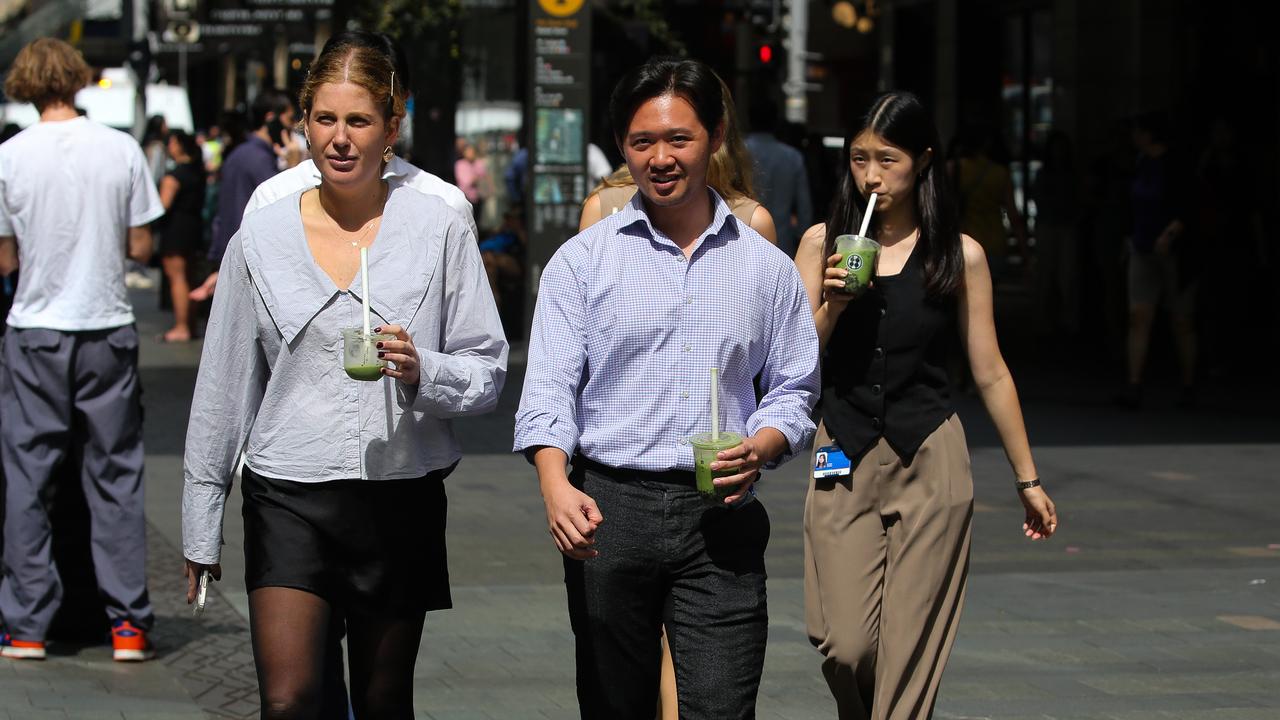Will the internships program help young people get jobs?
IT TAKES the average uni graduate almost five years to find a fulltime job. Will Scott Morrison’s new internship program actually help them?

THERE are many different reasons why a young person might not end up securing a job.
Even having a university degree doesn’t mean you will necessarily find work straight away. In fact, it takes a young person, on average, 4.7 years to find fulltime employment after graduating.
During this year’s Budget, the government set out its plan for tackling youth unemployment. It said it would offer six-week paid internships to those who have been looking for work for at least six months. But will the approach actually work?
‘GROWTH AND JOBS’
The government wants to give $840.3 million to a new program named Youth Jobs PaTH (Prepare, Trial, Hire). The aim is to get 120,000 people aged 17 to 24 who are currently on income support into jobs.
A core part of the scheme is to place as many as 30,000 young people each year in a voluntary four-to-12-week internship program. This will require completing six weeks of training and working 15 to 25 hours per week. Interns will earn an extra $200 each fortnight in addition to their existing income support.
Businesses providing the internships will receive a $1000 bonus, as well as a potential additional Youth Bonus wage subsidy of between $6500 and $10,000.
SKILL BUILDING, OR JUST CHEAP LABOUR?
Opportunities for young people to be exposed to working life have potential benefits, ranging from work experience, developing networks, self-confidence and skills on the job that, hopefully, lead to a job at the end.
But whether this internship program will help more young people get jobs depends on a number of things.
Following the 2014 election, it was announced that welfare recipients would have the option of working for the dole if they worked for 25 hours per week for welfare. But evidence from the US and previous Work for the Dole programs suggests that being in a mandatory program may reduce participants from seeking work; perhaps because they are too busy with their current workload. The same could possibly happen for those undertaking an internship.
Other criticisms have emerged from some unions, arguing that it amounts to “unpaid labour which is actually going to be subsidised by the taxpayer”.

They may have a point, depending on how you look it. An intern could be seen by an unscrupulous employer as cheap labour, with the taxpayer footing the bill for the training and incentives to the employer. On the other hand, if the internship leads to successful and secure work, this could save taxpayer expense on welfare payments — as well as being beneficial to the successful intern.
Nevertheless, there is something to be said about the message this sends to young people about the value of their labour. One commentator has already pointed out that when factoring in the combined payment of the program and Newstart allowance, jobseekers on these internships will be working up to 25 hours a week while earning just $363.80. The poverty line in Australia for a single person is $422.06 a week.
Another challenge for Youth Jobs PaTH will be to ensure that measures are in place to maximise the possibility of young people getting into secure, meaningful work — and keeping it.
Such safeguards would need to include the commitment of both interns and employers to the program, basic legal workplace requirements and a quality, meaningful internship experience in place. Whether six weeks will be sufficient is questionable, depending on the quality of the experience.
WHY IS IT SO HARD FOR GRADUATES?
Young people can struggle to get work because of a lack of qualifications and experience. Other factors can include where they live (particularly if they reside in regional and remote areas), their gender, or if they are from an indigenous or disadvantaged background.
One important factor in getting a job is to complete school. But this may not be for every one, so other pathways need to be developed and improved.
Even with the completion of year 12 or equivalent — and even a degree or post-school training qualification — some businesses are not happy with young people’s work-readiness and are reluctant to hire them. Surveys of employers repeatedly identify dissatisfaction with young people’s business and customer awareness, self-management skills and problem solving abilities, and literacy and numeracy skills.
Soft skills and learning how to learn are increasingly needed to navigate changing worlds of work in which there will be multiple careers. Internships are one way of developing them — but they can only go so far.
GETTING ‘A GOOD JOB’
A pressing question for policymakers is this: are good-quality, secure jobs available to young people?
Youth unemployment remains disproportionately high for young people aged 15 to 24 across Australia, rising as high as 28.4 per cent in regions such as outback Queensland.
Access to fulltime work is happening later in life — even for many university graduates. Young Australians face growing competition from global labour market flows and an ageing local population. Researchers found that between May 2003 and May 2013, the share of those aged 60 to 64 in the workforce increased from 39 per cent to 54 per cent.
The Baby Boomer generation is living and working longer, both by choice and necessity. Some bring experience and skills that young people do not have.
Underemployment, where young people aren’t able to get enough quality work, also remains a major issue. The casualisation of the workforce and greater competition for work in general are some of the reasons for this.
Lack of certainty across the areas of business, education and training suggest that for the election campaign, a more cohesive vision of youth employment policy is necessary, one which joins the dots between education, economic and social policies.
Perhaps most importantly, measures like the Youth Jobs PaTH program are only effective if quality, meaningful work is available at the end of the internship.
Lucas Walsh is Associate Professor and Associate Dean in the Faculty of Education at Monash University, and the author of Educating Generation Next: Young People, Teachers and Schooling in Transition. This article first appeared at The Conversation and is reproduced with permission.



